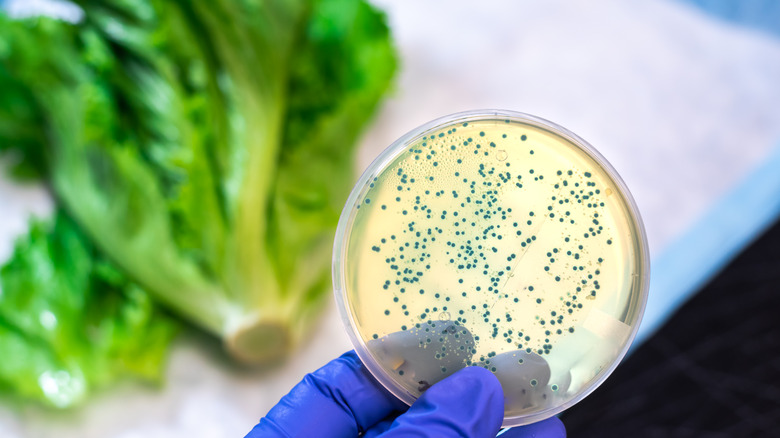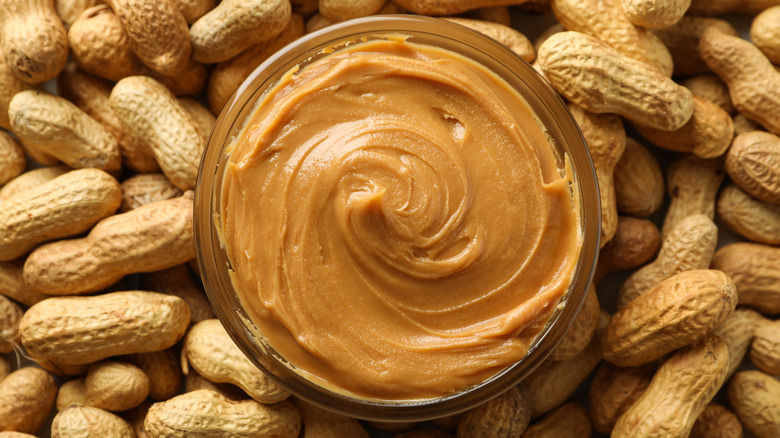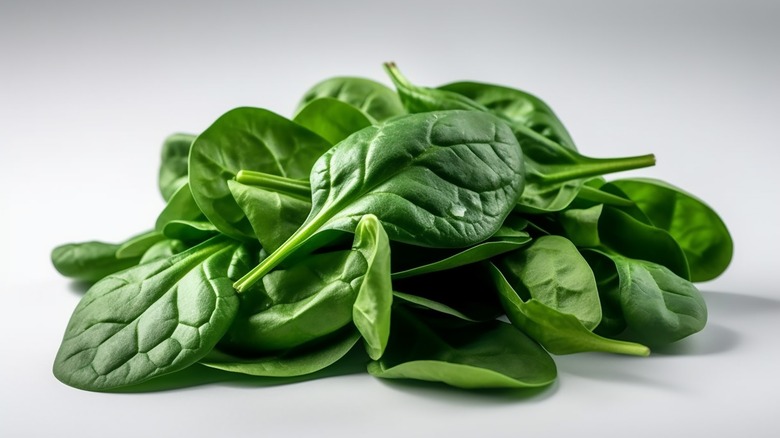Netflix's Poisoned Details Grocery Store Items With The Most Recalls
As many of us are well aware, certain foods are more likely to be recalled than others. Particularly when it comes to recalls due to bacterial contamination — such as E. coli or salmonella exposure — foods like leafy greens, peanut products, chicken, and eggs are by far more common than, say, crackers or juice.
Grocery store chicken contamination shouldn't come as too great a surprise, considering how often we're warned against eating raw poultry, but Netflix's new documentary, "Poisoned," highlights the hidden dangers of peanut butter and leafy greens.
Unfortunately, as the documentary paints all too clearly, bacterial contamination is not a problem only for raw and undercooked meat. Meat is at least cooked before consumption, killing the bacteria, but peanut butter and leafy greens are often consumed as is, meaning any bacteria present during production or harvest will still be there when you take a bite. But how do these bacterial outbreaks happen in the first place?
Peanut butter distributors turned a blind eye on salmonella
In perhaps the biggest scandal in peanut butter history, the Peanut Corporation of America shipped out salmonella-contaminated peanut butter in 2009 and 2010. More than 22,000 people were estimated to have been affected, with nine dying from food poisoning.
As noted in Netflix's "Poisoned," investigators eventually discovered that employees had told higher-ups about salmonella-positive tests, only to be told to falsify reports and ship the peanut butter out regardless. Ultimately, several PCA officials were sentenced to prison time for their role in the outbreak.
As for the peanut butter being contaminated by salmonella, investigators found the PCA manufacturing plants in disrepair, with a leaky roof and infestations of mice and insects. Talk about some gross ingredients in your peanut butter. Though no one can say for sure what exactly invited salmonella to the chat, we can probably all agree that these conditions are unsafe and unsanitary for food production.
Leafy greens are more dangerous than anyone could've anticipated
We've seen our fair share of romaine lettuce recalls, spinach recalls, mixed greens recalls — you name the leafy green, and it has probably been recalled due to bacterial contamination more than a few times. But how can these foods be so high-risk, when they're supposed to be good for you?
Netflix's "Poisoned" documentary explains that contaminated greens usually start with nearby livestock. For instance, if a cow down the road is infected with salmonella, its excrement will also be infected. The next time it rains, the bacteria wash away into farms' irrigation systems, where they get spread in the process of watering crops. And just like that, your favorite leafy greens become contaminated with salmonella.
Sadly, there might be no way to wash leafy greens entirely, or at least no method to wash off enough of the bacteria to keep you from getting sick. Not even triple-washed salad is completely safe. At the end of the day, the best any of us can do is keep an eye on recalls and try to be more mindful of where we source our food from.


